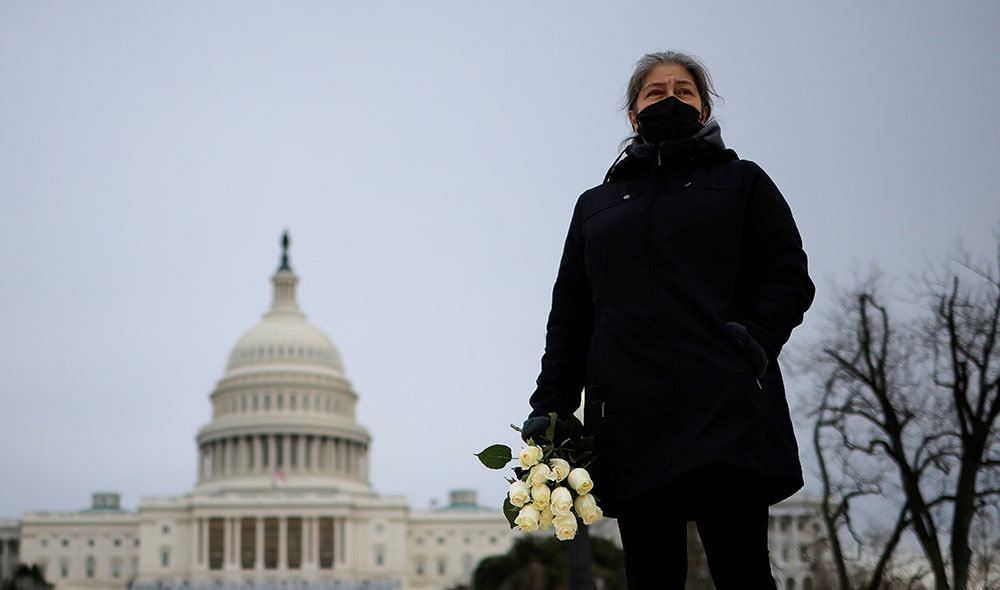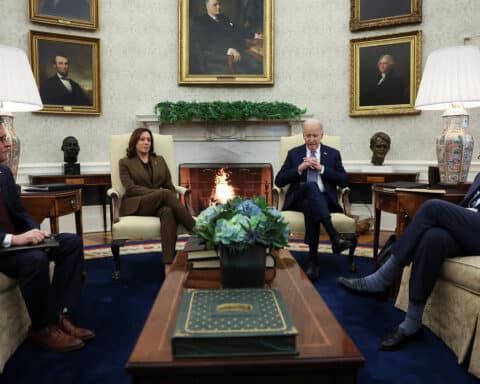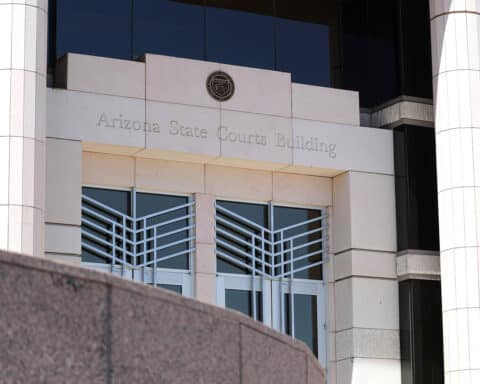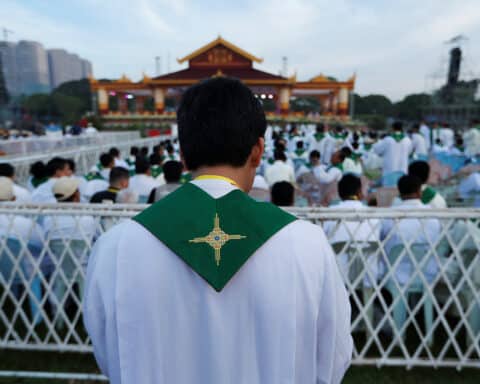In the final days of the Trump administration, amid deep political and social divisions that came to an horrific head during the attack on the U.S. Capitol on Jan. 6, there was one thing on which almost everyone, including politicians of both parties, media outlets and even Catholic bishops could agree: This is not who we are as a country.
In truth, they could not be more wrong: This is who we are. And it is who we have been — politically, culturally and, most importantly, religiously — not just since Jan. 6, 2021, or Nov. 3, 2020, or Nov. 8, 2016, but for many years now. No single politician or political party brought us to this point, though many, having no more elevated purpose in their political activity than to gain and maintain power, have moved us along the path.
What happened on Jan. 6 was a political crisis, one which almost certainly foreshadows further political crises to come, but more importantly it was a symptom of a much deeper cultural crisis afflicting the United States.
___________________________
The nations of Europe and their offspring, including the United States, have (with some notable exceptions in the 1930s and ’40s) been characterized for centuries by liberalism, in its broadest, deepest and oldest sense — that is, a philosophy of government and society based on the rule of law, representative democracy, free enterprise, and civil rights and duties. Founded on a deep respect for the individual and emphasizing personal freedom, liberalism has always had a complicated relationship with Christianity and the Church. Setting man, rather than God, as the measure of all things, and life in this world, rather than the next, as our ultimate end, liberal institutions have nevertheless been powerful engines of economic and political freedom.
Concerned with the non-Christian — and even anti-Christian — foundations of liberalism, the Catholic Church in the 18th and 19th centuries viewed it with, at best, a wary eye, before coming in the 20th century to accept that liberal institutions were here to stay. Theologians such as the French Catholic convert Jacques Maritain and the American Jesuit John Courtney Murray argued convincingly that liberal institutions owed their vitality to the patrimony of Christianity. A free people can only remain free so long as they remain virtuous; respect for the rule of law, representative democracy and civil rights rest ultimately on a Christian understanding of human dignity.
Strike at the root, and the whole tree withers.
______________________________
Throughout the late 20th century and into the early 21st, Catholic and other Christian authors have warned that the increasing marginalization of Christianity in public life represents a threat to the very institutions from which it has been excluded. The solution offered by men such as the Lutheran pastor (and later Catholic priest) Richard John Neuhaus in his 1984 book “The Naked Public Square” was to save liberal institutions by encouraging Christians (and people of other faiths) to bring their faith to bear in the political realm. Pastor Neuhaus’ proposal gained wide support among politically conservative Christians, but it suffered from a fundamental flaw: It reduced Christianity to a means to a political end.
What Pastor Neuhaus and others also failed to recognize was that Christians were in no position to save liberal institutions, because Christianity in the United States was already crumbling. Four decades ago, with both self-identification as Christians and participation in worship widespread among Americans, it was easy to write off rates of divorce, abortion, contraception and infidelity among American Christians that matched (or in some cases exceeded) those of their non-Christian fellow citizens as sinfulness (which, at least, as Christians they understood) or hypocrisy.
The increasing acceptance as well by Christians of all denominations of a degraded culture marked by the celebration of all manner of sexuality and violence, power politics and political corruption, foreign wars fought without regard to their justice, an economy built on consumerism and greed, and the cult of celebrity (which would propel Donald Trump into the White House in 2016) was a sign of something much more deeply wrong: the erosion among Americans to the commitment to truth that lies at the heart of Christianity. Without this, the virtue that makes liberalism possible cannot long survive.
The mob that stormed the Capitol on Jan. 6 believed lies that they had been told for months — not because they had been presented with evidence that those lies were true but because they wished to believe them. In that, they are no different from the rest of us: Increasingly, we believe what we want to believe, not because it is true, but because it is a convenient means to whatever end — political, economic, moral — we desire. Confronted with the truth, we don’t abandon our false beliefs but dismiss the truth as “fake news,” propaganda from our putative political enemies (left or right), or an imposition on our freedom of conscience and freedom of speech that we refuse to bear.
This is who we are.
__________________________________
On Jan. 25, we celebrate the conversion of Paul the Apostle. We all know the story well: Saul, the persecutor of Christians who had presided at the stoning of St. Stephen, the first martyr, was cast to the ground amid a blinding light while on the road to Damascus. That light was Christ, who is the Way, the Truth and the Life.
By the standards of his time and his religion, Saul had a good life. But after his encounter with the Truth, he cast that life aside to follow Christ, even to the point of martyrdom.
On Jan. 6, we were all knocked to the ground, and we, like Saul, face a choice. We can pick ourselves up, dust ourselves off, and continue along the road we’ve been on — certain to encounter more political strife and the crumbling of the political and social institutions that we as Americans hold dear.
Or we can do as Paul did: embrace the Truth, and let ourselves — even our very identities — be changed by Christ. We can repent of our past and follow the Truth, no matter the cost — not in order to save the country, but to save our souls.
St. Paul didn’t leave his old life behind with the intention of changing the political and social realities of the Roman Empire. But because he followed Christ, and brought others to him, that is in fact what happened. Our increasingly post-Christian society has been living off of that patrimony for centuries, and, as Jan. 6 made clear, the endowment is running out.
The events of Jan. 6 made it very clear who we are. But it’s not who Christ calls us to be.
Our Sunday Visitor Editorial Board: Gretchen R. Crowe, Scott P. Richert, Scott Warden, York Young





